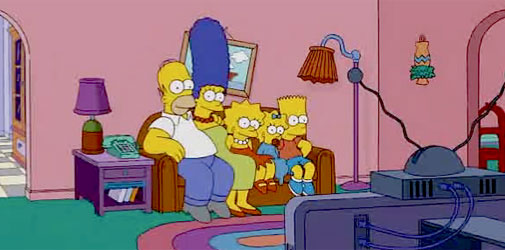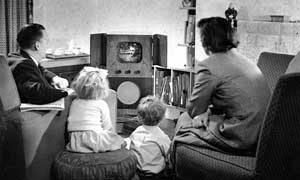
You heard it here secondhand:
Last week, the American Academy of Pediatrics released a warning that "secondhand TV" -- the casual exposure to television, when being watched by other, older viewers -- can harm the development of children under age 2. To which I say, well, that's not the stupidest thing any organization has said about television. But it does make the semifinals...
The basic concept, admittedly, does contain a kernel of common sense. When a TV is on in the background, it can serve as a distraction, both to kids at play and to parents and caregivers interacting with them. The American Academy of Pediatrics is saying, essentially, that when an adult is watching television as well as a young child, the multi-tasking robs the child of more intense, instructive and loving one-on-one interaction.
To summarize: People who pay full attention to kids are better for them, and to them, than ones who are watching TV at the same time. As Norm Macdonald used to say on Saturday Night Live before quoting something painfully obvious on Weekend Update, "Ripped from the pages of Duh magazine!"

Too much "secondhand TV," the study says, hurts the language development of small children. But firsthand TV, if it's Sesame Street, helps. So to me, all this buzz about "secondhand TV" is so much secondhand smoke.
In 1979, when I was a TV critic in Fort Lauderdale, the Florida Orthodontic Society went so far as to blame television for crooked teeth. "When a child watches TV," the organization insisted, "he often leans on one hand, pushing in on his teeth. Changing that habit early on can save a bill for braces later on."
One solution, I wrote at the time, is to have the child watch less television. Another, equally effective solution, I added, is to allow the child to watch just as much TV as before, but to switch hands half the time.
I have the same basic reaction to "secondhand TV." When you're raising a kid, it's what's in the foreground, not in the background, that really matters.